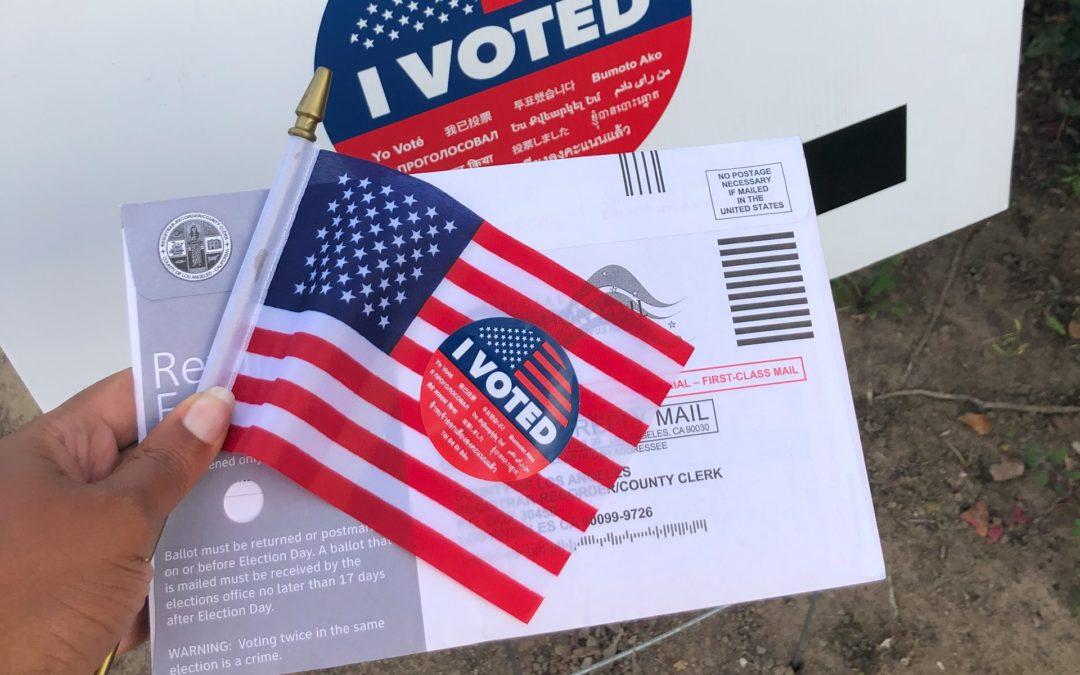Welcome to our comprehensive guide on the top 30 civic responsibilities individuals hold within their communities. Civic responsibility embodies the duties and obligations each person has toward their society, contributing to its well-being and functioning. These responsibilities go beyond merely obeying laws; they encompass active participation and engagement in shaping a better communal landscape. In this article, we’ll delve into a diverse array of 30 essential civic responsibilities, spanning from exercising the right to vote and engaging in public discourse to volunteering, respecting others’ viewpoints, and fostering a culture of inclusivity.
Understanding and fulfilling civic responsibilities is fundamental to nurturing a thriving society. It’s about recognizing the interconnectedness we share within our communities and embracing actions that uphold ethical, moral, and social values. Through this exploration, you’ll discover practical ways to actively contribute to the betterment of your community, ensuring a collective commitment to fostering a more harmonious, equitable, and engaged society. Join us as we uncover the impactful role each of us plays in shaping the world around us through responsible civic engagement.
What is Civic Responsibility?
Civic responsibility refers to the duty of citizens to actively participate in the well-being of their community and society at large. It encompasses engagement in political processes, adherence to laws, and involvement in activities that contribute positively to the social fabric. Fulfilling civic responsibilities involves voting, volunteering, obeying laws, and advocating for social justice, ultimately fostering a thriving and cohesive society.
Civic responsibility extends beyond mere compliance with laws and regulations; it involves a proactive commitment to promoting the common good. This commitment manifests through various forms of civic engagement, such as community service, environmental stewardship, and active participation in public discourse.
Embracing civic responsibility empowers individuals to play an active role in shaping the social, political, and economic landscape. By engaging in civil dialogue, respecting diverse perspectives, and working towards shared goals, citizens contribute to the advancement of a more inclusive and equitable society.
Furthermore, civic responsibility encourages a sense of accountability among individuals, inspiring them to take ownership of societal issues and work collaboratively towards sustainable solutions. It fosters a sense of belonging and encourages solidarity among community members, reinforcing the interconnectedness that underpins a thriving civil society.
In essence, civic responsibility is the cornerstone of a vibrant and resilient democracy, fostering active citizenship and collective action for the betterment of society.
The Best Examples of Civic Responsibilities
1. Voting
Voting is the cornerstone of democracy. It is how citizens participate in the selection of their leaders and the direction of government policies. By voting, individuals can influence the course of their country and hold their elected officials accountable.
2. Staying Informed
Staying informed means actively seeking out reliable sources of news and information. It’s essential because an informed citizenry is better equipped to make reasoned decisions about important issues, both at the local and national levels.
3. Volunteering
Volunteering is the act of giving your time and skills to help others or support a cause. It’s a selfless way to make a positive impact in your community, from serving in a soup kitchen to tutoring children.
4. Community Engagement
Actively participating in your local community means attending town hall meetings, joining neighborhood associations, and supporting local initiatives. This involvement fosters a sense of belonging and empowerment.
5. Paying Taxes
Paying taxes is a civic responsibility that funds essential government services such as infrastructure, education, and healthcare. Taxes are the lifeblood of any functioning society.
6. Jury Duty
Serving on a jury is a critical part of the justice system. Jurors ensure that trials are fair and impartial, upholding the principle of justice and the rule of law.
7. Obeying Laws
Obeying the laws of the land is fundamental for maintaining order and safety within a society. Laws are created to protect the rights and well-being of all citizens.
8. Civic Education
Promoting civic education ensures that citizens understand the principles of democracy, their rights, and their role in government. Educating younger generations about civics is an investment in the future of democracy.
9. Environmental Responsibility
Taking responsibility for the environment involves sustainable practices like reducing waste, conserving energy, and supporting eco-friendly policies. It’s essential to safeguard the planet for future generations.
10. Supporting Local Businesses
Supporting local businesses helps boost the local economy, create jobs, and foster a sense of community. It’s a way to invest in the prosperity of your neighborhood.
11. Promoting Tolerance
Promoting tolerance and respect for diversity is essential in a diverse society. It fosters social cohesion and reduces discrimination, which benefits everyone.
12. Reporting Crime
Reporting criminal activity to law enforcement helps maintain safety in your community. It’s a duty that contributes to the well-being of your fellow citizens.
13. Supporting Public Education
Active involvement in public education, whether through parent-teacher associations or advocating for educational policies, ensures that children receive a quality education.
14. Blood Donation
Donating blood can save lives in medical emergencies. It’s a direct and immediate way to contribute to the well-being of those in need.
15. Neighborhood Watch
Participating in or supporting a neighborhood watch program involves vigilance to enhance safety in your community. It’s a proactive approach to preventing crime.
16. Promoting Health
The promotion of healthy behaviors, such as regular exercise and nutritious eating, helps to make our society healthier, brings down the cost of medical treatment, and raises the bar for our general quality of life.
17. Supporting the Arts
Promoting cultural and artistic endeavors can enrich the cultural life of your community. It not only provides entertainment but also stimulates creativity and cultural understanding.
18. Volunteering in Disaster Relief
Disaster relief volunteering is crucial during natural disasters or emergencies. It involves providing aid, comfort, and support to those affected by catastrophes.
19. Advocating for Social Justice
Advocating for social justice causes addresses systemic inequalities in society. This may involve working to end discrimination, poverty, or other forms of injustice.
20. Participating in Town Hall Meetings
Attending or speaking at local government meetings allows citizens to voice their concerns and ideas directly to their elected officials. It’s a way to actively engage in the decision-making process.
21. Organizing Community Cleanups
Taking care of public spaces, parks, and streets enhances the quality of life in your neighborhood. It fosters a sense of pride and community well-being.
22. Mentorship
Guiding and mentoring younger individuals, whether in education, career, or personal development, can have a long-lasting positive impact on their lives and the community as a whole.
23. Supporting Veterans
It is important to express thanks to veterans and their families for the sacrifices they have made for our country by providing them with the assistance and recognition they require as they readjust to civilian life.
24. Responsible Consumerism
Making ethical choices in your purchasing decisions involves supporting businesses that practice social responsibility and sustainability. It’s a way to use your buying power for positive change.
25. Promoting Internet Safety
Educating others about online safety and etiquette is important in the digital age. It helps create a responsible online community and protects individuals from online threats.
26. Being a Good Neighbor
Building positive relationships with your neighbors fosters a sense of community and can be a source of support during challenging times. It promotes social cohesion and a sense of belonging.
27. Disaster Preparedness
It is a civic duty to ensure that one is prepared for any emergency that may arise by maintaining both a disaster plan and an emergency supply kit. During times of crisis, it contributes to the protection of your family and the community.
28. Supporting Nonprofits
Donating to and volunteering with nonprofit organizations can address a wide range of social issues, from poverty to education, and improve the quality of life for many individuals.
29. Public Transportation and Carpooling
Congestion on the roads can be alleviated by using public transportation or carpooling, which also has a positive effect on the environment and helps advance the creation of transportation systems that are both effective and environmentally friendly.
30. Political Activism
Engaging in peaceful political activism and advocacy is a means to bring about social and political change. Whether it’s through protests, letter-writing campaigns, or grassroots organizing, activism is a way to shape public policy and influence the direction of society.
Importance of Civic Responsibilities
The importance of civic responsibility cannot be overstated in a functioning and healthy society. Civic responsibility is the cornerstone of a democratic and well-ordered community, and it plays a pivotal role in shaping the character and progress of a nation. Here are several key reasons why civic responsibility is of great significance.
- Preservation of Democracy – Civic responsibility is the lifeblood of democracy. When citizens actively participate in the democratic process by voting, engaging in political discussions, and staying informed, they ensure that the government remains accountable and responsive to the needs and desires of the people.
- Social Cohesion – Civic responsibility fosters a sense of community and belonging. When individuals take an active role in their community, it helps create strong social bonds and a shared sense of purpose, leading to a more harmonious and inclusive society.
- Government Accountability – By holding elected officials accountable through voting and civic engagement, citizens help prevent corruption and abuse of power. This accountability ensures that those in positions of authority act in the best interests of the public.
- Positive Change – Civic responsibility empowers individuals and groups to bring about positive changes in their communities. Through volunteering, activism, and advocacy, citizens can address social issues, influence public policy, and work towards a more just and equitable society.
- Protection of Rights and Freedoms – Civic responsibility is closely tied to the protection of individual rights and freedoms. When people actively engage in civic life, they help safeguard their own and others’ rights, ensuring that these fundamental liberties are not eroded.
- Resource Allocation – Through civic responsibilities like paying taxes and participating in the census, individuals contribute to the allocation of resources for public services such as education, healthcare, and infrastructure. This funding is essential for the well-being and progress of the entire community.
- Education and Awareness – Engaging in civic responsibilities, such as staying informed and promoting civic education, helps individuals become more knowledgeable about the world around them. Informed citizens are better equipped to make informed decisions and contribute to informed public discourse.
- Environmental Stewardship – Civic responsibility extends to protecting the environment. By taking eco-friendly actions and supporting policies that address environmental concerns, citizens contribute to the sustainability of the planet for future generations.
- Emergency Response and Resilience – Civic responsibility includes preparedness for emergencies and disaster relief efforts. Being ready for crises and supporting relief efforts helps ensure the safety and resilience of communities during challenging times.
- Economic Prosperity – Supporting local businesses and making responsible consumer choices can bolster the local economy, create jobs, and enhance the overall prosperity of the community.
Civic responsibility is not just a set of duties but a way for individuals to actively participate in the shared project of building a better society. It’s an essential aspect of being a responsible and engaged citizen, and it empowers people to shape the world around them in a positive way. Ultimately, the importance of civic responsibility lies in its ability to create a more democratic, just, and prosperous society for all its members.
Difference Between Civic Responsibilities and Civil Responsibilities
Civic responsibilities and civil responsibilities are related concepts but have distinct meanings and implications.
Civic Responsibilities
- Definition: Civic responsibilities refer to the duties and obligations that individuals have as members of a community or society. These responsibilities are typically related to the well-being and functioning of the community and often involve actions that contribute to the common good.
- Scope: Civic responsibilities are broader in scope and encompass a wide range of actions that individuals can take to contribute positively to their society. They are often associated with active citizenship and engagement in the community.
- Examples: Voting, staying informed, volunteering, supporting public education, environmental responsibility, promoting tolerance, and engaging in political activism are examples of civic responsibilities.
Civil Responsibilities
- Definition: Civil responsibilities are a subset of civic responsibilities that specifically pertain to an individual’s legal obligations within a society. These responsibilities are defined and enforced by the legal system and are generally related to upholding the law and respecting the rights of others.
- Scope: Civil responsibilities are more narrowly focused on legal and ethical obligations. They are concerned with maintaining social order, ensuring justice, and protecting individual rights and property.
- Examples: Obeying laws, paying taxes, serving on a jury, fulfilling contractual obligations, and respecting the rights of others are examples of civil responsibilities.
The Most Popular on BitGlint

40 Social Dilemma Examples in the World & Real Life
Social dilemmas are everywhere. They shape the choices we make at work, in our communities, and even on a global...

30 Favor Examples & Definition
Doing a favor means helping someone without expecting anything in return. It’s an act of kindness that can strengthen...

30 Naivety Examples & Definition
Naivety is something most people experience at some point in their lives. It often starts in childhood, but for some,...

20 Chronology Examples & Meaning
Chronology is something we use more than we realize. It shows up in conversations, in how we remember the past, and in...

30 Wishful Thinking Examples & Meaning
Wishful thinking is something we all do at some point. You hope things will turn out fine—even if there’s no real...

20 Examples of Gravity & What Gravity Really Is
Gravity is one of the most important forces in the universe, but many people don’t fully understand what it really is...

20 Examples of Secondary Consumers in the Food Chain
Secondary consumers are animals that eat other animals—usually herbivores that feed on plants. They’re an important...
Get Inspired with BitGlint

